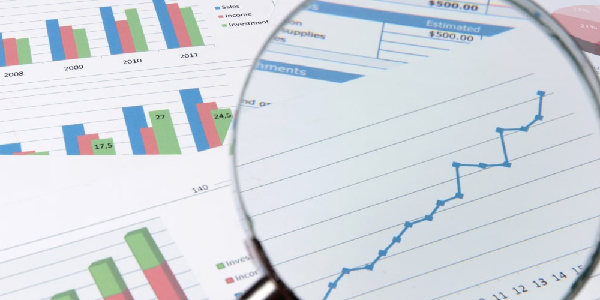UP TO THE MINUTE
4 areas you should be collecting marketing data from

By Jocelyn Van Saun, SOCIUS.
Measuring the success of your marketing can be difficult, but the digital age has allowed for the collection of data that can quantify the effectiveness of your strategies.
Besides the leads that come word of mouth, the other main way to get leads in the roofing industry is through marketing, specifically digital marketing as our world moves more and more online. Through online advertisements and search engine optimization, your business can generate even more qualified leads. But starting a digital marketing initiative can be intimidating, and the data you receive after it begins can be confusing.
To get the most out of your digital marketing, it is important to not shy away from the data and instead use it to improve your future initiatives. To help you navigate through the digital marketing world, the experts here at SOCIUS have put together some background information and the four main places you should be gathering data from.
Unraveling the digital tapestry with key metrics
When it comes to digital marketing, success isn’t a mere aspiration — it’s a tangible outcome shaped by data, insights and a keen understanding of key metrics. As businesses navigate the ever-evolving landscape, the ability to measure and interpret the effectiveness of digital marketing efforts becomes paramount. Welcome to the realm where precision meets strategy — the key to measuring digital marketing success.
Data-driven decision making
The beauty of focusing your marketing efforts on your online presence is the treasure trove of information it generates, giving you, the business owner, access to a roadmap to success. Whether it’s website analytics, like unique page views, email click-through rates or social media metrics, like post shares, data empowers marketers to make informed decisions, refine strategies and enhance the overall impact of their successful digital marketing campaign.
To measure success, you first have to define what success looks like. Are you aiming to increase website traffic, drive conversions or boost brand awareness? Each objective requires a unique set of key metrics. Understanding which data points align with your goals is the compass that guides your digital marketing journey.
In addition to these metrics, assessing the Customer Lifetime Value (CLV) is vital, as it provides a comprehensive view of the long-term worth of customers acquired through your digital marketing initiatives, further informing your ROI analysis and strategy refinement.
1 - Website analytics as the north star
The digital storefront for any business is its website. Tools like Google Analytics can offer insights into audience demographics, popular content and conversion funnels. By deciphering this data, marketers can optimize user experiences and refine content strategies.
Key metrics in site analytics
- Page views: Overall traffic, indicating how many clicks your site receives.
- Unique visitors: The number of individual visitors interacting with your site.
- Engagement: Metrics like time spent on your site and pages visited reveal visitor interest.
- Bounce rate: Indicates how quickly users leave your site; higher rates may signal issues.
- Top pages: The most frequently visited pages, often your homepage.
- Exit pages: Pages users visit most before leaving your site.
- Referrals: Track links leading users to your site from external sources.
- Conversion and cost per action: Measure user interactions with CTAs and the cost of conversions.
- Page load time: Measures how quickly your pages load, a crucial factor for user experience and search engine ranking algorithms.
- Crawl errors: Identifies issues search engine crawlers encounter while navigating your site, ensuring a seamless indexation process.
- Pages per session: Measures the average number of pages a user views during a single session, indicating the effectiveness of your content in capturing and retaining audience interest.
To track website analytics online, utilize tools like Google Analytics for overall performance insights, heatmaps and session recordings for user behavior analysis. You can also implement event tracking and conversion tracking to monitor specific interactions and goal completions or use UTM parameters for digital marketing campaigns’ tracking, leverage SEO analytics tools for search performance and use social media and email marketing analytics for channel-specific insights.
Tip: Be sure you’ve set up GA4, Google’s latest free web and analytics reporting tool. Google required a mandatory shift from Universal Analytics to GA4 by July of 2023. GA4 introduces a more dynamic and event-centric model, emphasizing granular insights through events and conversions, allowing businesses to tailor tracking to their unique objectives for a more detailed analysis of user behavior.
Learn more about the transition to GA4 and how to get set up.
2 - Search engine optimization
Embarking on the journey of SEO requires a keen eye on digital marketing metrics that unveil the effectiveness of your efforts. These key indicators offer insights into your website’s visibility, user experience and overall performance in the competitive landscape of organic search.
Key metrics in SEO
-
Organic traffic: Measures the number of visitors driven to your site through organic (non-paid) search engine results, providing a foundation for assessing your SEO strategy.
-
Keyword rankings: Tracks the positions of your targeted keywords on search engine results pages (SERPs), offering a snapshot of your website’s visibility and relevance.
-
Backlink quality: Assesses the quality and authority of websites linking back to your content, influencing your search engine rankings.
-
Local SEO metrics: Encompasses factors like local search rankings, Google Business Profile performance and online reviews for businesses with a geographical focus.
Tracking SEO success involves using tools like Google Analytics, Google Search Console, Ahrefs and Bing Webmaster Tools to monitor keyword rankings, impressions and click-through rates. Analyzing website traffic and user behavior through tools like Google Analytics provides insights
3 - Social media engagement
In the age of connectivity, social media is a powerhouse for brand visibility. Building a loyal following and fostering engagement are the keys to amplifying your brand’s digital footprint.
Key metrics in social media analytics
- Click-through rate (CTR): Measures the percentage of users who clicked on a link in your post, offering insights into content effectiveness.
- Follower growth: Tracks the increase in your social media following, reflecting the growth of your online community.
- Impressions: The total number of times your content has been displayed, providing a broader view of visibility.
- Hashtag performance: Analyzes the reach and engagement of posts featuring specific hashtags, helping refine your hashtag strategy.
- Shares: Indicates how many times your content has been shared, amplifying its reach and impact.
- Comments: Measures the number of comments on your posts, reflecting target audience interaction and sentiment.
- Conversion rate: Measures the percentage of social media users who complete a desired action on your website, such as making a purchase or filling out a form.
Depending on the platform you’re monitoring, businesses can utilize social media analytics tools such as Facebook Insights, Twitter Analytics and Instagram Insights. These platforms provide data on engagement, reach, clicks and audience demographics, as well as key performance indicators (KPIs) like follower growth, engagement rate and click-through rates help assess the effectiveness of social media marketing campaigns.
4 - Paid advertising
Navigating the realm of paid advertising demands a strategic understanding of digital marketing metrics that unveil the true impact of your campaigns to refine their advertising strategies, optimize budgets and maximize returns.
Key metrics in paid media
- Cost per click (CPC): Measures the average cost you pay for each click on your ad, allowing for effective budget management and cost optimization.
- Impressions: Reflects the total number of times your ad has been displayed, showcasing the reach and visibility of your advertising campaigns.
- Ad position: Where your ad appears on the search results page, influencing click-through rates and overall digital marketing performance.
- Quality score: A crucial metric assessed by platforms like Google Ads, indicating the relevance and quality of your ad, impacting ad placement and cost.
- Return on ad spend (ROAS): Measures the revenue generated for every dollar spent on advertising, providing a clear ROI perspective for your campaigns.
- Ad engagement: Includes metrics like likes, comments and shares for social media advertising, showcasing the level of audience interaction and campaign resonance.
- Ad placement performance: Assesses the effectiveness of different ad placements across platforms, informing strategic decisions for optimal exposure.
- Customer acquisition cost (CAC): Measures the cost of acquiring a new customer through paid advertising, helping evaluate the profitability of your advertising efforts.
When it comes to the synergy between paid and organic media, digital analytics becomes even more crucial. By monitoring both paid and organic data together, you can gain a comprehensive understanding of your business’s digital landscape and uncover the synergies between your efforts. Ultimately, digital analytics empowers us to make informed decisions, refine our tactics and deliver measurable success for our clients across diverse digital channels.
Return on investment (ROI)
A true measure of success lies in the return on investment. Understanding the monetary impact of your digital marketing efforts, be it ad spend, outsourced content creation or a website rebuild, ensures that resources are allocated judiciously. It’s important that you continually monitor the above metrics to decide what’s working and what isn’t, then adjust your digital marketing based on your findings.
Continuous optimization
The digital landscape is dynamic, requiring marketers to be agile and adaptive. Regularly reviewing and interpreting key metrics allows for continuous optimization. Whether it’s tweaking ad creatives, refining targeting parameters or adjusting content strategies, the key to sustained success is the ability to evolve in response to real-time insights. As businesses strive to thrive in the digital era, embracing the power of measurement becomes not just a strategy but a necessity.
Original article source: SOCIUS
Learn more about Socius Marketing in their Coffee Shop Directory or visit www.sociusmarketing.com.



















Comments
Leave a Reply
Have an account? Login to leave a comment!
Sign In